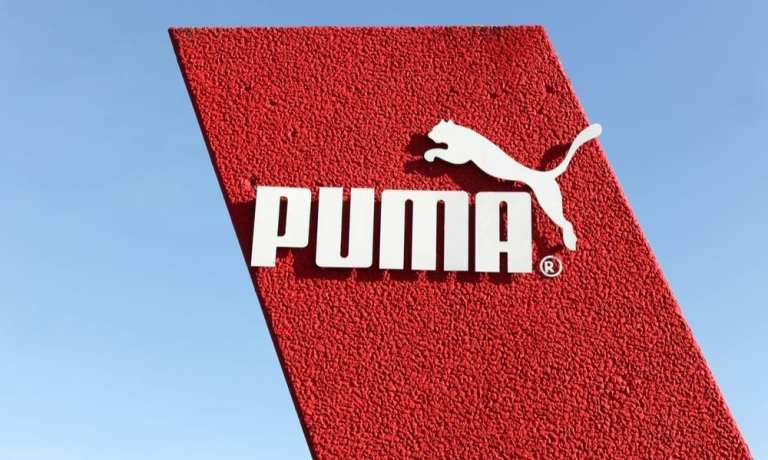Retail Pulse: PUMA Opens Tech-Powered NYC Flagship; Target To Roll Out Disney Shops

Sportswear companies are opening brick-and-mortar stores centered around experiences to let their customers interact with their brands in real life. PUMA, for instance, brought its first-ever North American flagship store to New York City, sporting features such as a customization studio and tech-driven engagement zones.
The store has 18,000 square feet of interactive retail space that encompasses two floors with double-height storefronts across 160 feet of wraparound frontage. With Chinatown Market University, for instance, customers will have the ability to customize PUMA footwear, apparel and accessories via the printing technology of The Chinatown Market. And the team from The Chinatown Market will also have classes around different customization and DIY methods “to help inspire the next generation of creatives,” according to an announcement.
Customers can also try out the latest PUMA boots through a simulator that “mimics the pitch of San Siro Stadium” while having virtual coaching from brand ambassadors and athletes. And customers can use the iMirror by NOBAL placed throughout the store to see products in different colors as well as styles. A basketball zone will feature “state-of-the-art technology including QR codes located on all products,” according to the company. Shoppers can also personalize as well as customize PUMA apparel, footwear, and accessories through 3D-knitting, paints, patchwork and laser printing, among other mediums.
“PUMA is thrilled to open its first flagship in New York City, in a prime Manhattan location, that will allow us to connect with both our U.S. and international customers,” PUMA SE Chief Executive Officer Bjoern Gulden said in the announcement. “I believe investing in this new store — in one of the fastest paced cities in the world — will help us in our pursuit to be the fastest sports brand in the world. We’re committed to pushing the boundaries of sports, fashion and technology, and this store is the latest manifestation of that commitment.”
Beyond PUMA, Nike opened a digital-powered flagship in the Big Apple per reports last year. Nike provided an experience that allowed NikePlus program members to ditch the traditional cash register by scanning and paying through the program’s app. The retailer also offered a Shop the Look service, which allowed customers to scan a quick-response (QR) code to discover the available colors and sizes of the items displayed on a mannequin. The shopper could then tap into the app to request that staff bring the product to a drop-off spot or fitting room.
With technology and immersive experiences, sportswear companies are opening flagship brick-and-mortar stores to let customers interact with their brands offline and in person.
In Other Brick-and-Mortar News
Target has revealed it will roll out its new Disney shop locations in 25 select stores in October. Brian Cornell, the retailer’s CEO, and Bob Chapek, chairman of Disney parks, experiences and products, made the official announcement at the D23 Expo in Anaheim, California on stage. The company wrote in an announcement about the effort, “We’re setting out on a new adventure with Disney to bring magical shopping experiences to our guests.”
The in-store experience will see 40 additional locations opening by October 2020, and the Target is also rolling out a new digital experience online at the beginning of October. The Disney shops in Target will be approximately 750 square feet and near children’s clothing as well as toys. Each shop will showcase over 450 items such as games, apparel, toys and accessories, with over 100 products that were previously only available at Disney’s own locations.
And Hudson’s Bay Company (HBC) is selling Lord & Taylor to clothing rental subscription service Le Tote for $100 million. Lord & Taylor is said to be the oldest department store chain in the country and was acquired in 2006 by Toronto-based Hudson’s Bay. The firm will retain ownership of the store’s real estate, while Le Tote will take over the 38 Lord & Taylor stores, digital channels and inventory.
The arrangement enables the department store chain to continue operations and potentially transform its approach to bolster falling sales and reach shoppers of today. HBC Chief Executive Helena Foulkes said in a statement, “We’re excited to have reached an agreement with Le Tote that creates a new model for Lord + Taylor, bringing together fashion rental subscriptions with traditional retail.”
In other retail news, Panera Bread announced national delivery availability for the first time via Grubhub, Uber Eats and DoorDash to build on its in-house delivery model. The arrangement lets diners order through the apps while still having deliveries from Panera drivers (in most markets), according to an announcement from the company.
To keep tabs on the latest retail trends, check next week’s Retail Pulse.